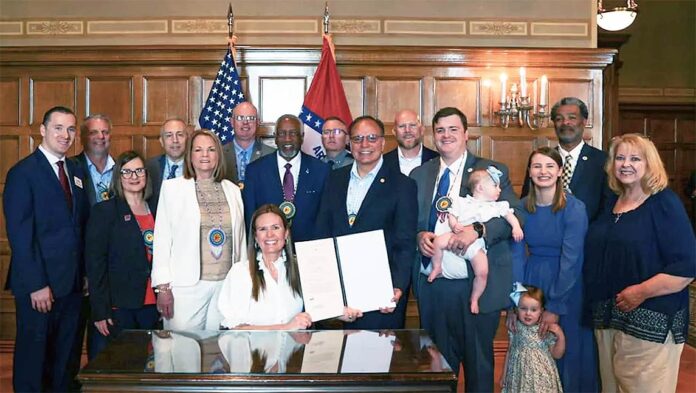DURANT, OK – A newly passed law in Arkansas is expected to enhance public safety for all residents and visitors. Senate Bill 510, which was signed into law by Gov. Sarah Huckabee Sanders, expands law enforcement agencies’ ability to collaborate across jurisdictions.
Specifically, SB 510, allows cross-deputization agreements between municipal, county, state and tribal law enforcement agencies within Arkansas. Agreements like these, which are common in neighboring states like Oklahoma, authorize officers to partner to enforce laws. They improve cooperation, response times and overall public safety.
“SB 510 represents a huge step forward for collaboration to enhance public safety in Arkansas and the Choctaw Nation,” said Chief Gary Batton of the Choctaw Nation of Oklahoma (CNO). “Other states have demonstrated the long-term value of collaboration and cooperation between tribal nations and law enforcement at all levels. We look forward to developing public safety partnerships in Arkansas to benefit all residents and visitors.”
The author of the bill, Arkansas State Representative, District 50. Zack Gramlich, was pleased to see the bill become law.
“As a lifelong resident of the City of Fort Smith, and a Choctaw Nation tribal member, I am proud to have authored this legislation that serves my city and allows for collaboration with the Choctaw Nation of Oklahoma,” said Gramlich. “Public Safety is always an utmost responsibility and priority, and I am proud to be one part of helping to create a pathway for these partnerships.”
“This cross-deputization legislation marks a critical step forward in ensuring the safety and well-being of all our communities,” added Fort Smith Mayor George B. McGill. “By strengthening collaboration between tribal and non-tribal law enforcement, we’re removing barriers to timely, effective public safety responses. Fort Smith is proud to stand with the Choctaw Nation and support this important partnership.”
The Choctaw Nation maintains more than 75 partnerships across Oklahoma, improving law enforcement, especially in rural areas, while also recognizing tribal sovereignty. The tribe has doubled its Lighthorse Police force in recent years to protect members and the tribe’s neighbors.















































